U.S. History and Context
Barbering in America (1600s-1860s)
Barbering became a way for enslaved black men to navigate the world outside of plantations as skilled tradesmen. Many of these men became apprenticed to free Black men who had their own shops, or even set up their own shops with the slaveholder's permission. Most of the income generated by their services would be sent back to the slaveholder as a part of the condition of slavery.
Being away from the plantation gave these men a type of mobility not found among many other enslaved people. Some could save a bit of the profits, and create opportunities to escape since they were not under the watch of the plantation owners, overseers, and other enslaved people.
So the unique position of Black barbers was a kind of bridge between worlds. Free Black men who hired enslaved men entered a position of power: an employer, largely reserved as a luxury of whiteness and wealth. Simultaneously, those enslaved men who became aprentences entered into the role of employee: a position vastly different from their forced position as property. This role of course is not like what we think of today in the employer/employee relationship. But it set the stage for what would continue to be a unique role for Black barber shops throughout their history.
From its inception, the barbershop served as a place for congregation and discussion. In the beginning most clients were white men, but as time went on, the Black barbershop became one of the few spaces where several different brackets of men congregated across class and status, allowing for the unique position of the spaces to take shape.
Barbering in America (1860s-1890s)
With the end of the era of slavery in 1865, newly freed African Americans were still considered the lowest class. But this did not stop Black citizens from seeking a new beginning. African American historian Nell Painter, a professor at Princeton university, has tracked the millions of freed Blacks leaving the south at this time, and notes that the destinations were a lot more varied than we think. There was even a migration to Los Angeles, risking it all for rumors of a better life on the west coast. “That's action. That's taking your life in your hands,” said Painter. “That's the very definition of agency.” Black barbershops from the 1860s through the 1890s were still almost exclusively serving white men. But that was soon to change.
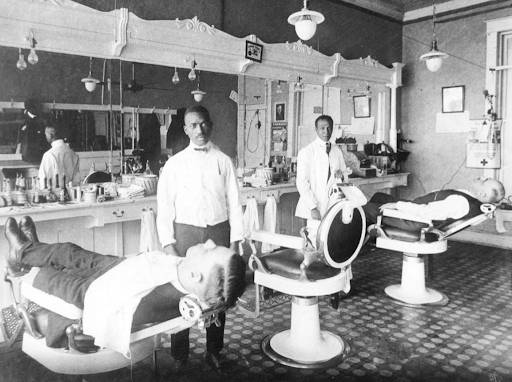
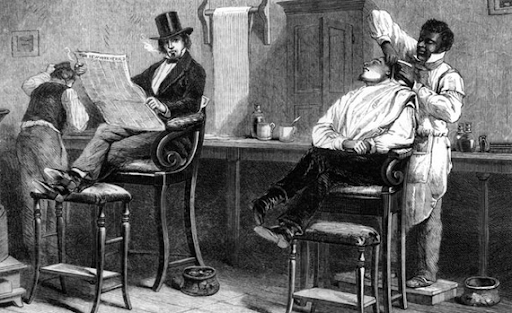
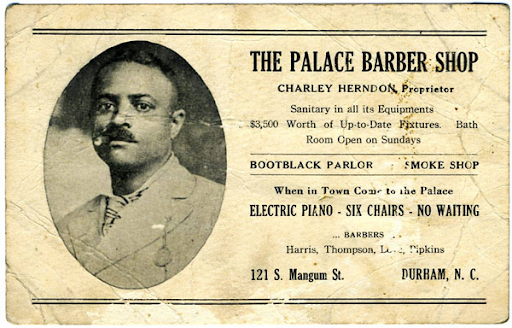
Barbering in America (1900s - 2020s)
The Black barbershop grew out of a place of servitude but eventually became a place of resistance, education, and emancipation. This continues today. First, they serve as a place for Black wealth generation through consistent patronage. Barbers develop relationships with their clientele and the communities they serve. Revenue generation depends on several characteristics such as reputation, quality, and connection. Barbering is a skilled profession, but one that has a lower barrier for entry than some others.

John Merrick from Durham, NC.
Expanded from a barber shop to North Carolina's first Black-owned bank, drug store and other enterprises.
Founded the NC Mutual Insurance Company.
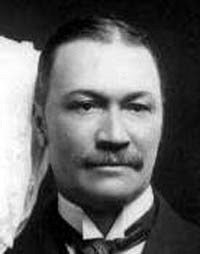
Alonzo Herndon from Atlanta, GA.
Niagara Movement
ATL Life Insurance Company
One of the first Black Millionaires.
Barber shops joined black churches, beauty shops and the Black press as a space for the public sphere of Black life. A place where Black citizens across classes and backgrounds engaged in lively discourse about political and daily events. Black men have historically had few spaces where they can congregate freely and deliberately, with privacy to discuss issues important to them. Barbershops have served as spaces for vulnerability and bravado; for honoring tradition and admiring innovation. Films that capture the essence of these spaces include Coming to America (1988), Malcolm X (1992), and Barbershop (2002). Notable authors such as Ralph Ellison, Toni Morrison, Amiri Bakara and Richard Wright also pay homage to the importance of the barbershop to Black men in America.
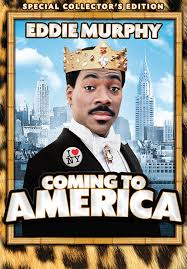
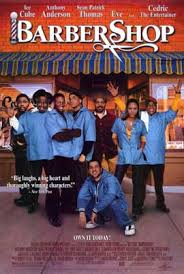
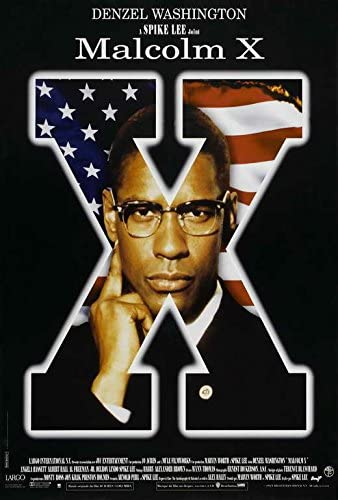
Example
Henry Miller Morgan: Founder of Tyler Barber College, the first barbering school for African Americans in Tyler,Texas, USA. At one time, approximately 80% of all African American Barbers were educated at this school.